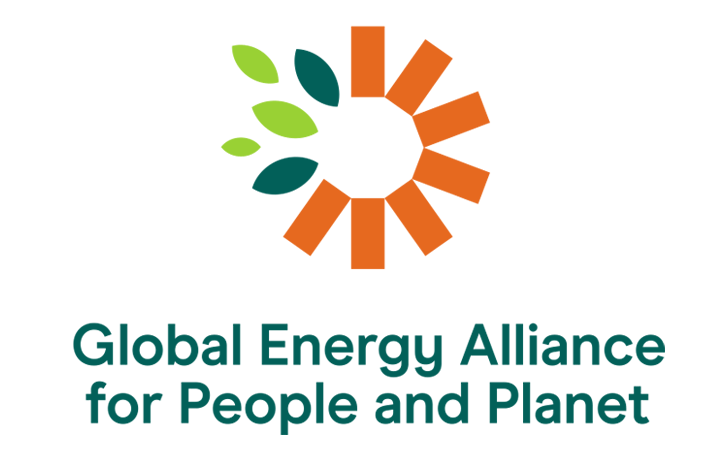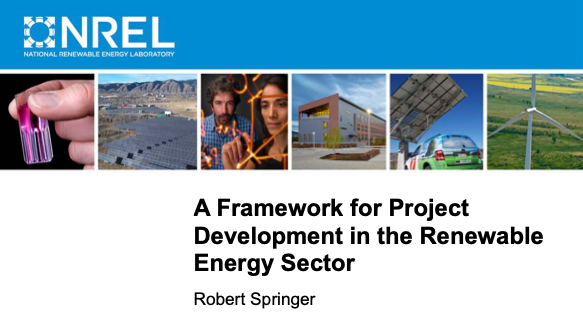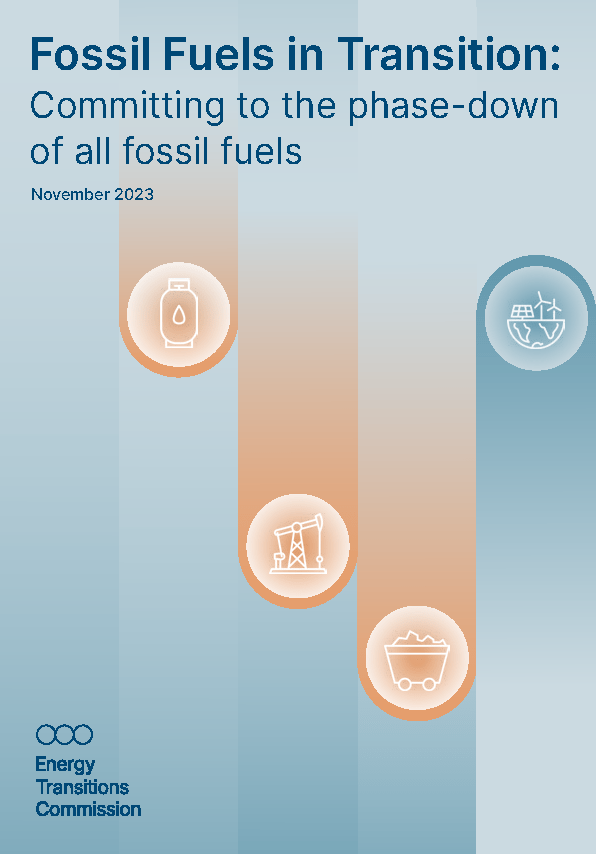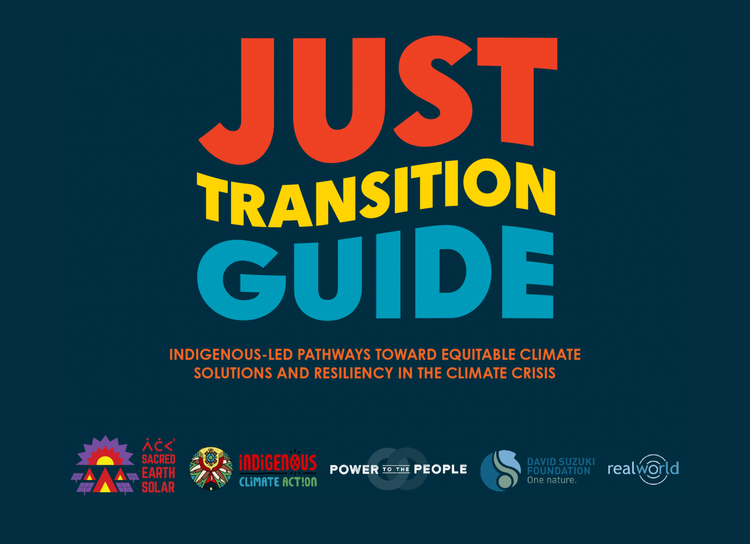Renewable Energy Development
Description
Including adopting and encouraging renewable energy options.
Share this Subissue on:LinkedIn
Resources
Global Energy Alliance for People and Planet
The Global Energy Alliance for People and Planet (GEAPP) is an alliance of philanthropy, local entrepreneurs, governments, and technology, policy, and financing partners that support a clean energy transition and ensuring universal energy access. They have produced a range of reports to support your understanding of key renewable energy topics, such as how the power system can be transformed in energy-poor countries and the job creation potential from a green power transition. Their flagship report, Powering People and the Planet, is a good resource for understanding the global challenge of ending energy poverty and the steps required to ensure a just energy transition.
A Framework for Project Development in the Renewable Energy Sector
Is your business considering sponsoring a renewable energy project? If so, this guide will help provide a contextual framework as well as a systematic, repeatable process for understanding and navigating early-stage project development. Although professional project developers may find the concepts herein as intuitive, this document provides a thorough catalog of fundamental steps and definitions.
Just Transition and Renewable Energy: A Business Brief
This business brief from the United Nations Global Compact outlines how your business can support public Just Transition policies. The authors acknowledge that business has a key role to play in ensures that the transition to the low carbon economy is just. The brief provides ten recommendations for how business can support the transition through their policy advocacy. This guidance will be most useful to your Government Affairs or Public Policy team.
Fossil Fuels in Transition: Committing to the phase-down of all fossil fuels
This in-depth, scenario-based report from the Energy Transitions Commission (ETC) can help you understand what technologies and supporting policies are needed to decarbonise the global economy. It highlights the policies required to reduce fossil fuel demand; the role of different clean energy technologies in replacing fossil energy; and the role of carbon capture and removals. There is also a sectoral breakdown outlining where emissions reductions are most needed. This high-level overview of a global energy transition will be most useful to business leaders, strategy teams, and sustainability practitioners seeking to find out how their organisation fits in the global transition towards renewable energy development.
Just Transition Guide: Indigenous-led Pathways Toward Equitable Climate Solutions and Resiliency in the Climate Crisis
The global transition towards renewable energy is an important opportunity for Indigenous Communities to choose their own future. This resource from Sacred Earth Solar (SES) and others can help you understand how renewable energy projects can enable a Just Transition for Indigenous Communities. It explains the current challenges related to the Canadian energy and electricity systems and how they can be improved to support decentralised renewable energy projects. It showcases different pathways for developing community-based renewable energy systems such as solar, wind, small-scale hydro, and explains key considerations and learnings from communities that have already implemented them. This resource also explores other community solutions for a Just Transition, such as, food sovereignty, and reimagines how government policy can support these efforts. The lessons here will be most useful to sustainability and community relations teams whose organisations work with - or impact - Indigenous communities.
Renewable energy certificates threaten the integrity of corporate science-based targets
This paper published explains how the credibility of corporate science-based targets can be undermined by the use of renewable energy certificates (RECs). It outlines how the widespread use of RECs by companies have led to overestimates of mitigation impacts, and it argues that revised GHG accounting guidelines are needed to meet the 1.5 °C goal of the Paris agreement. The key findings of this paper will be most useful to sustainability practitioners, CSOs, and other executives involved in setting climate goals.
Site Renewables Right
This article by The Nature Conservancy introduces their Site Renewables Right Map. This interactive web map of the central United States combines more than 100 layers of engineering, land-use, and wildlife data to help you understand where wind and solar development will have a lower impact on wildlife. This information is intended to empower companies and communities to accelerate the deployment of renewable energy while protecting nature. This tool will be most useful to those involved in developing or procuring renewables energy, such as project development, engineering, procurement, and sustainability teams.
Tracking SDG7: The Energy Progress Report, 2023
This comprehensive progress report by the International Energy Agency (IEA) and other agencies can help you understand where progress has been made and where it is off track to meet the 2030 goal of SDG 7. The first five chapters review progress trends across key indicators (energy access, energy efficiency, renewable energy, clean cooking, and financial flows toward clean energy); chapter six provides a progress forecast for 2030 based on IEA’s policy scenarios; and chapter seven explains the data collection and methodological challenges related to each of the indicators. This resource will be most useful to sustainability practitioners interested in a statistical overview of global trends in energy and their alignment with international climate and development goals.
The Clean Energy Buyers Institute (CEBI)
The Clean Energy Buyers Institute (CEBI) is a non-profit organisation that produces and curates resources that can help you understand innovative clean energy market solutions. Their resources include toolkits, explainers, and research on topics such as advancing grid decarbonisation and clean energy procurement. They have also curated a range of relevant resources. This platform will be most useful to Procurement, Operations, and Sustainability teams, or anyone responsible for energy purchasing.
Sustainable Power Policy Tracker
Banks have a major role to play in supporting power decarbonisation, either by directing financial flows to new sustainable power systems or ceasing financing of fossil fuel expansion and supporting phase-out. This tool can help you to better navigate the sustainable power policy landscape. Created to ensure the financial sector is adopting effective sustainable power policies to forcefully contribute to the 1.5°C climate goal, it tracks the commitments adopted by the top 60 banks worldwide regarding their support for sustainable power, including their targets for supporting sustainable power supply; for financing new sustainable power capacity; and for reporting on progress and other aspects.
Coal Policy Tracker
This tool can help you to better navigate the coal policy landscape. Created to ensure the financial sector is adopting effective coal policies to forcefully contribute to the 1.5°C climate goal, it assess over 500 institutes against seven criteria, including the exclusion of both new coal projects and the expansion of existing coal mines, plants, and infrastructure.
Oil & Gas Policy Tracker
This tool can help you to better navigate the oil and gas policy landscape. Created to ensure the financial sector is adopting effective oil and gas policies to forcefully contribute to the 1.5°C climate goal, it assess over 440 institutes against seven criteria, including the immediate exclusion of financial services dedicated to oil and gas projects as well as phase-out commitments.











